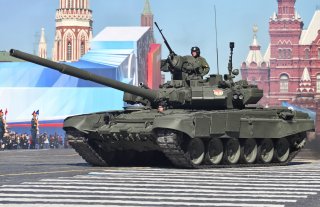How Will the Ukraine War End? With China Emerging as a Superpower
Because of the rise of isolationism in Western nations, many nations that looked to the West for security protections began to work with China and other regional powers, like Iran, Brazil, or India, for security agreements.
In this scenario, I project that the Russian-Ukrainian conflict could potentially pave the way for China's emergence as a superpower.
I contend that the Chinese believe that Western nations will eventually tire of providing support to the Ukrainians, particularly if the war reaches a stalemate. This continued support for an unsuccessful war will ultimately weaken Western political leaders during upcoming elections, and usher in an era dominated by isolationist-minded politicians who won't advocate for the support of the Ukrainians. Furthermore, the ongoing provision of increasingly advanced weaponry to the Ukrainians will lead to depleted Western armories, which will take years to replenish, leaving those nations vulnerable to threats elsewhere.
As China sees diminishing returns from supporting the Russian war efforts, they may begin to suggest a cease-fire. Given the prevalence of isolationist governments in the West, these nations may encourage Ukraine to engage in negotiations.
At the same time, President Putin may step down due to health issues or other concerns, and a new hardline leader may take his place, unencumbered by Putin's controversial reputation. The Western media may portray this new leader as a centrist who is eager to end the conflict, placing even greater political pressure on Ukraine.
Ukrainian and Russian leaders meet under the diplomatic umbrella of China to negotiate a ceasefire. The agreement allows Russia to retain strategic possessions around the Black Sea but also includes a promise to guarantee Ukraine's sovereignty. However, the promise lacks any real enforcement mechanism. Western leaders celebrate the end of the war, hailing it as a time of peace in Europe and global cooperation.
The war has caused a significant shift in the world's geopolitical landscape. Russia was weakened by the loss of its conventional weapons and soldiers in the war, leaving them with no choice but to rely more heavily on nuclear weapons as a means of projecting their power. It may take Russia several years to rebuild its conventional deterrent, which would lead to an increased threat of nuclear war.
Because of the rise of isolationism in Western nations, many nations that looked to the West for security protections began to work with China and other regional powers, like Iran, Brazil, or India, for security agreements.
A multi-polar geopolitical landscape emerges that favors certain nations both economically and politically.
About the Author
Edward Salo, PhD, is Associate Professor, History, Arkansas State University. The views expressed in this article are those of the author and do not necessarily reflect those of Arkansas State University.
Image: Creative Commons.

